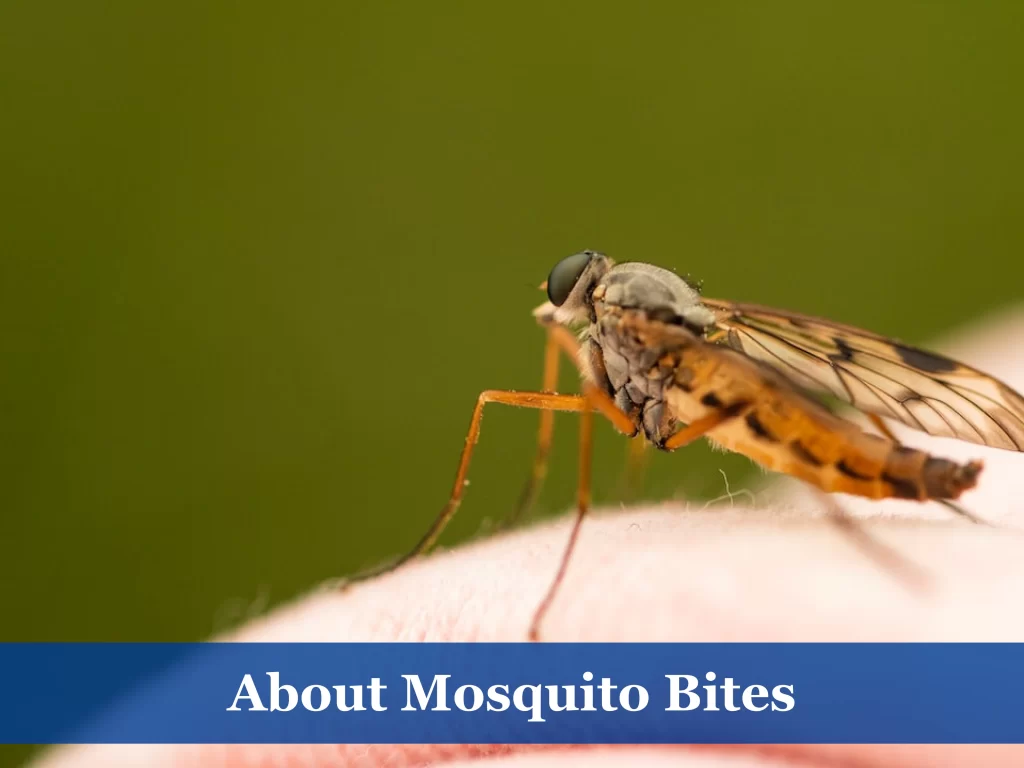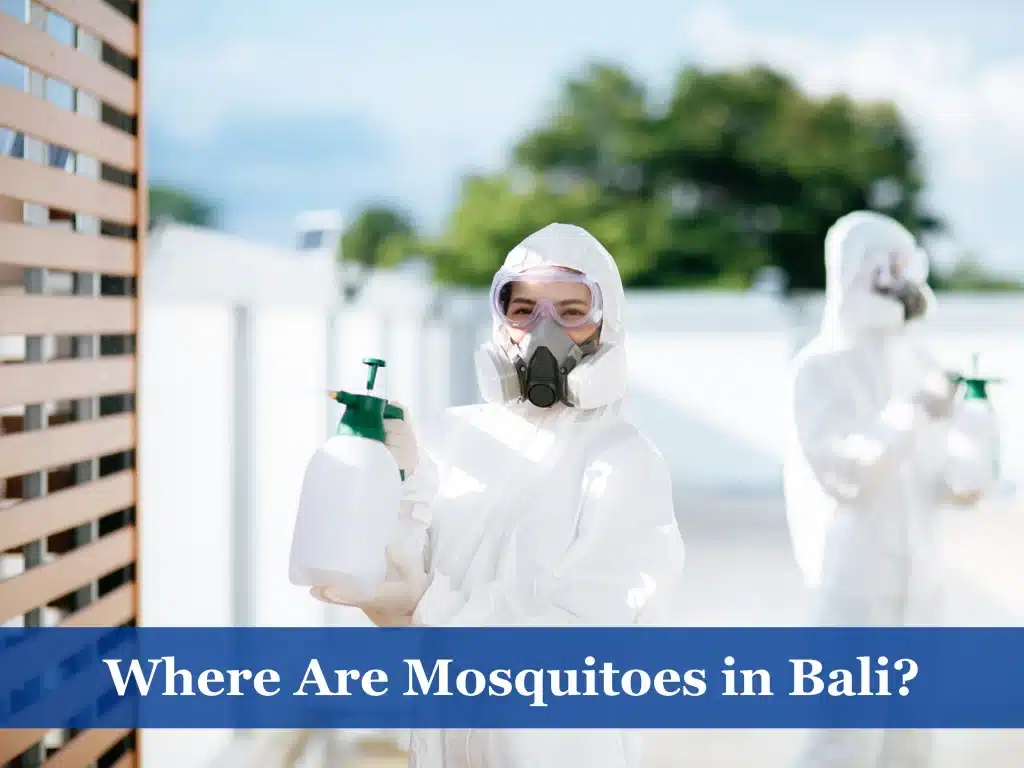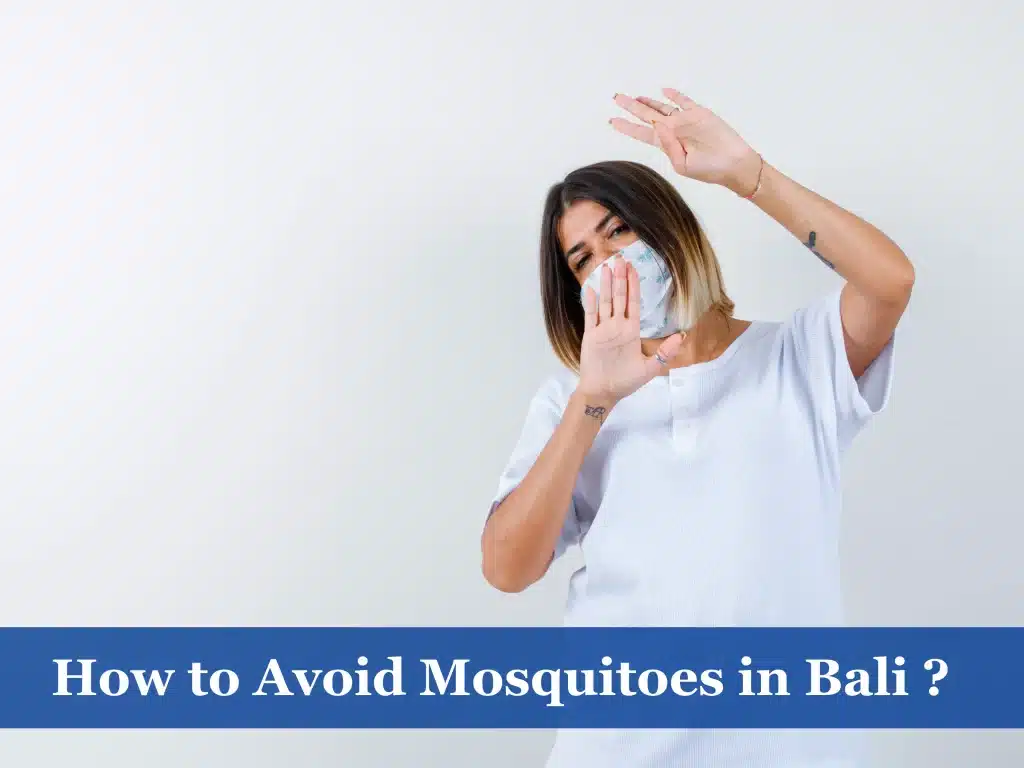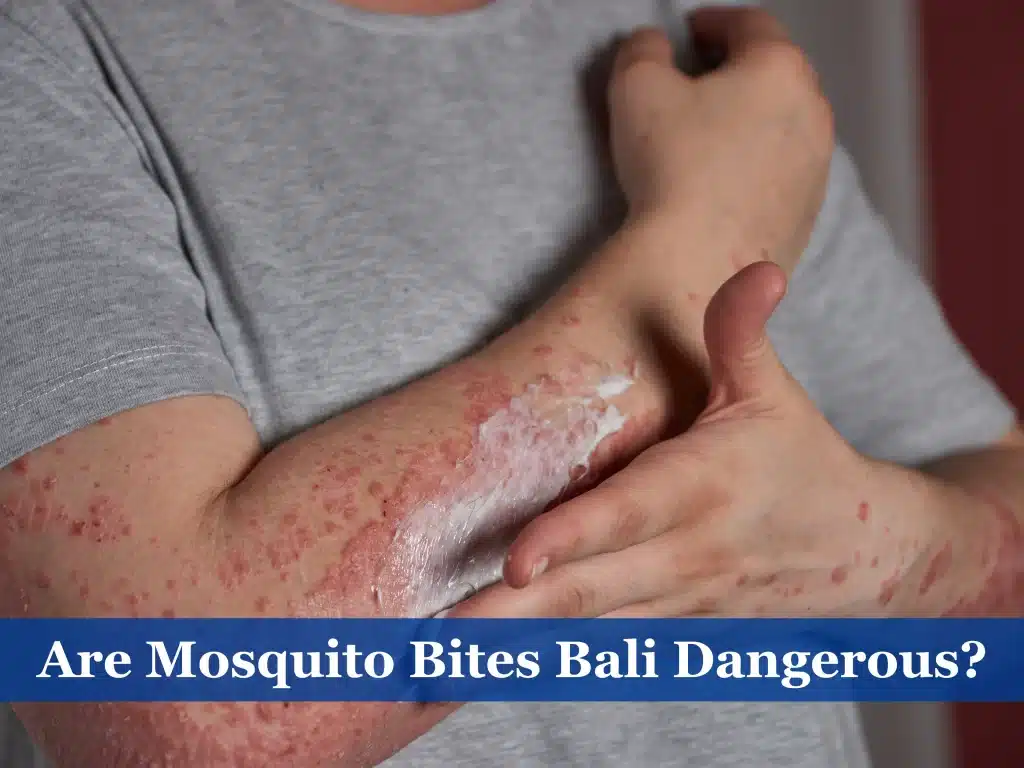Mosquito bites Bali are a common concern due to the island’s warm and humid climate. Mosquitoes can be found in various areas of Bali, including urban settings, rural villages, and natural environments such as forests and rice fields. These insects are most active during dawn and dusk but can also bite throughout the day, especially in shaded or damp areas.
While mosquito bites are generally harmless, they can pose certain risks. Mosquitoes in Bali may carry diseases such as dengue fever, chikungunya, and Zika virus. The symptoms of these diseases can range from mild discomfort to severe illness, including high fever, body aches, rash, and fatigue. It is important to take precautions to minimize the risk of mosquito bites Bali and reduce the chances of contracting these diseases.
To prevent mosquito bites in Bali, it is advisable to use insect repellents containing DEET or other recommended ingredients. Wearing long-sleeved shirts, long pants, and socks can provide an additional layer of protection. It is also beneficial to stay in accommodations with screened windows and doors or use mosquito nets while sleeping. Removing stagnant water sources, where mosquitoes breed, from around your living and resting areas is another effective preventive measure.
In the event of a mosquito bite Bali, it is essential to avoid scratching the affected area to prevent infection. Applying calamine lotion or over-the-counter hydrocortisone cream can help alleviate itching. If you experience symptoms such as high fever, severe headache, or persistent vomiting after a mosquito bite, seek medical attention promptly, as it may indicate a mosquito-borne disease.
While mosquito bites Bali are a potential concern, taking necessary precautions can significantly reduce the risk. By being informed about mosquito habitats, risks associated with bites, and adopting preventive measures, you can fully enjoy the wonders of Bali while keeping yourself protected from mosquito-borne diseases.

Are There Mosquitoes in Bali?
Yes, there are mosquitoes in Bali. Mosquitoes are common in tropical and subtropical regions, and Bali is no exception. The most common species of Mosquito found in Bali is the Aedes aegypti, which is known to transmit dengue fever, chikungunya, and Zika virus. Another species of Mosquito found in Bali is the Anopheles mosquito, which is known to transmit malaria. However, the risk of contracting malaria in Bali is low, and most cases are reported in remote areas.
The risk of contracting malaria in Bali is low, but it’s still a good idea to take precautions. This is especially true if you plan on visiting remote areas or spending time outdoors at night. In addition to using insect repellent and wearing protective clothing, consider taking antimalarial medication. This medication can help prevent malaria, but it’s essential to talk to your healthcare provider before taking any medication.
While mosquito bites Bali can be a concern in Bali, it’s important to remember that they shouldn’t deter you from visiting this beautiful island. By taking proper precautions and being aware of the risks, you can stay safe and healthy while enjoying all that Bali has to offer. So pack your insect repellent and sunscreen, and get ready to experience Bali’s culture, cuisine, and natural beauty.

Where Are Mosquitoes in Bali?
Mosquitoes can be found in many parts of Bali, including urban areas and rural villages. They are most active during the early morning and late afternoon but can also be present throughout the day and night. Mosquitoes are attracted to standing water, so areas near ponds, lakes, and rivers are more likely to have a higher population of mosquitoes. They also thrive in areas with dense vegetation and high humidity, such as rice fields and jungles.
Hotels and resorts in Bali often take measures to reduce mosquito populations, such as spraying insecticides, installing mosquito nets, and providing guests with mosquito repellent. However, it’s still important to take personal precautions to protect yourself from mosquito bites Bali. If you’re staying in a villa or apartment, consider installing mosquito nets over your bed or using a mosquito repellent device.
If you’re planning on visiting Bali during the rainy season, which typically lasts from October to March, consider taking extra precautions. The rainy season can lead to more standing water, creating breeding grounds for mosquitoes. Additionally, the increased humidity during this time can make mosquito bites more uncomfortable and increase the risk of infection. By taking the necessary precautions and being aware of the potential risks, you can have a safe and enjoyable trip to Bali, regardless of the time of year.

How to Avoid Mosquitoes in Bali?
Preventing mosquito bites Bali is the best way to avoid mosquito-borne illnesses. Here are some tips to help you avoid mosquitoes in Bali from the Salinebali clinic:
- Use insect repellent: Apply insect repellent with DEET, picaridin, or oil of lemon eucalyptus to the exposed skin. Be sure to follow the instructions on the label.
- Wear protective clothing: Wear long-sleeved shirts and pants, and tuck your pants into your socks to prevent mosquitoes from biting your ankles.
- Use mosquito nets: Use a mosquito net when sleeping, especially if you are staying in a rural area or near standing water.
- Get rid of standing water: Mosquitoes breed in standing water, so eliminate any sources of standing water near your accommodation, such as empty pots, flower vases, or buckets.

Are Mosquito Bites Bali Dangerous?
Mosquito bites in Bali should be cautiously approached, as mosquitoes can transmit various diseases. The most prevalent mosquito-borne illnesses in Bali include dengue fever, chikungunya, and Zika virus. Symptoms of these diseases can vary in severity and may include fever, headache, muscle and joint pain, and rash. While it’s essential to be aware of these risks, it’s worth noting that most people who contract these diseases recover fully with proper medical care.
Malaria is also present in Bali, but the risk of contracting the disease is relatively low. The Anopheles mosquito is responsible for transmitting malaria, and symptoms may include fever, chills, and flu-like symptoms. It’s essential to take precautions to avoid mosquito bites and seek medical attention if you experience any symptoms associated with these illnesses.

How to Treat Mosquito Bites Bali?
If you do get bitten by a mosquito in Bali, here are some tips to help you treat the bite:
- Clean the bite: Clean the bite with soap and water to reduce the risk of infection.
- Apply a cold compress: Apply a cold compress to the bite to reduce swelling and itching.
- Use over-the-counter remedies: Over-the-counter remedies such as calamine lotion or hydrocortisone cream can help reduce itching and swelling.
- Try natural remedies: Natural remedies such as aloe vera or tea tree oil can also effectively reduce inflammation and soothe the skin.
- Seek medical attention: If you develop any symptoms of a mosquito-borne illness, such as fever, headache, or rash, seek medical attention immediately.
When to Consider Dengue Testing?
Dengue fever is a significant concern in Bali, as the Aedes aegypti mosquito transmits it. Suppose you experience symptoms such as high fever, severe headache, joint and muscle pain, or rash after being bitten by a mosquito. In that case, it is crucial to seek medical attention promptly and consider getting a dengue test. Early detection through testing can help prevent severe complications and ensure a faster recovery.
One reputable option for getting a dengue test in Bali is the SalineBali clinic. They offer reliable and accurate dengue testing services, allowing for timely diagnosis and appropriate medical care. By visiting the SalineBali clinic, you can access professional healthcare services and receive guidance on necessary treatment and monitoring if your test results indicate dengue fever.
Remember, preventing mosquito bites is vital to reducing the risk of mosquito-borne illnesses. Take precautions such as using insect repellent, wearing protective clothing, and eliminating standing water to minimize the chances of mosquito bites. If you get bitten, clean the bite, apply a cold compress, and seek medical attention if any symptoms of a mosquito-borne illness develop. By staying vigilant and taking the necessary steps, you can enjoy all that Bali has to offer while prioritizing your health and well-being.



